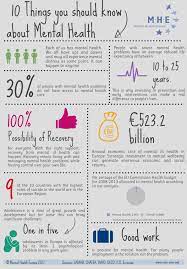The World Health Organisation (WHO) and the United Nations Information Center (UNIC) have expressed the need for the media to understand the issues surrounding mental health in order to act optimally in their role to assist in tackling its numerous challenges.
Both organisations gave the advice at the two-day training programme for journalists they put together in collaboration with other UN agencies on Monday in Abuja.
The training with the theme: “Celebrating the power of community kindness” was put together to commemorate the World Mental Health Day (WMHD) celebrated globally on October 10.
Speaking at the training, the WHO Representative in Nigeria, Dr Walter Kazadi, described mental health as intrinsic and instrumental to the lives of all people as it could influence how they think, feel and act.
He said mental health disorders had increased and affected 15 per cent of working-age adults globally, noting that suicide contributed to death among 15-29 years old with up to 70 per cent of them living in low and middle income countries.
He said journalists by the nature of the jobs they do face tremendous amount of pressure, especially with lot of media outfits working for 24 hours, 7 seven days a week.
He added that: “Given the importance of the work you do, there’s a need to build your capacity on mental health.
“Therefore, various topics will be covered over the next two days, including what is mental health and why we all need to have good mental health.
“Mental health is universal human right, intersection between journalists and mental health, practical strategies to prevent and/or manage common mental health conditions, and how to empower you to report on mental health issues.”
He assured that WHO would always remain committed to building journalists capacity and to empower them on different aspects of health including strategies for managing individual health.
On his part, the Director of UNIC, Mr Ronald Kayanja said the training had become important to enable journalists understand proper ways to look after their mental health.
He said: “These days, we are so conscious about physical health, but now we should also learn a lot about our mental health.
“How we report about mental health issues requires capacity building, to help us understand how to keep ourselves and also report mental health.”
Meanwhile, Dr Tunde Ojo, National Coordinator, National Mental Health Programme, Federal Ministry of Health (FMOH) said the training was designed to equip journalists with necessary tools to deal with mental health issues.
Ojo said it has become imperative to understand one’s mental state, while discharging one’s duty, therefore the training was organized to promote mental wellbeing of journalists.
He added that: “Journalist can be quite vulnerable while discharging their duties and if neglected it can cause serious damage to one’s entire wellbeing.
“Journalist are exposed to lots of things daily that impact their mental health negatively; we want journalists to know how to cope with mental health, when to take break or even see an health expert when necessary.
“Understanding mental health can help journalists give better reportage about it; we believe journalists and healthcare workers are strategic, because whatever they decide to do can affect the society.”
The event which was attended by journalists from across 40 media organisations featured discussion on prevention strategies for common mental health conditions, intersection between mental health and journalism.


